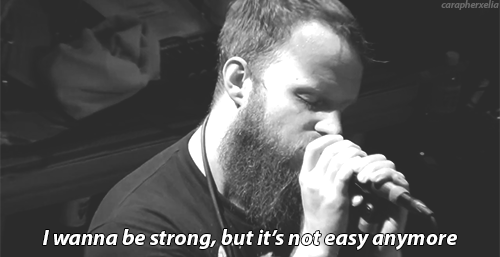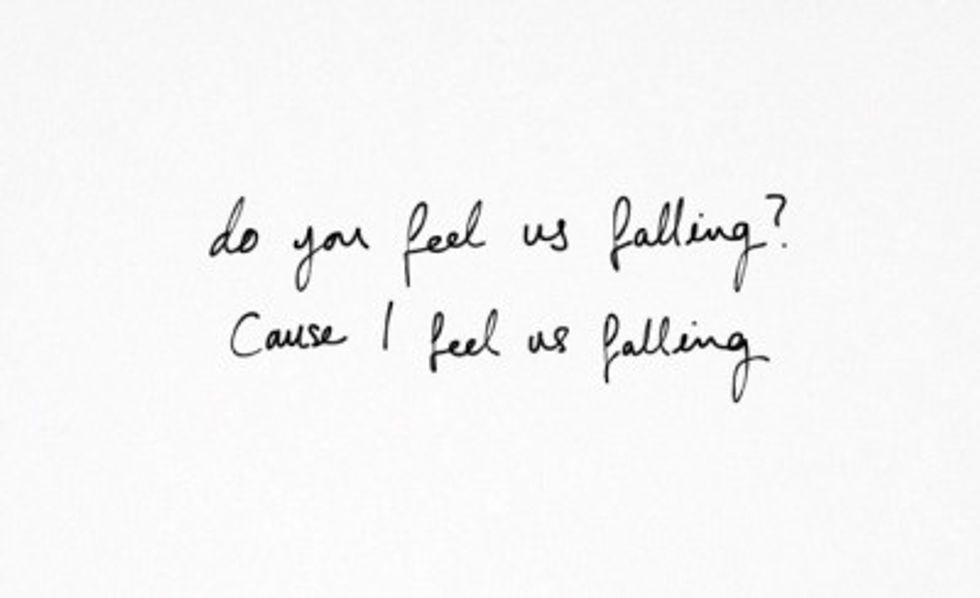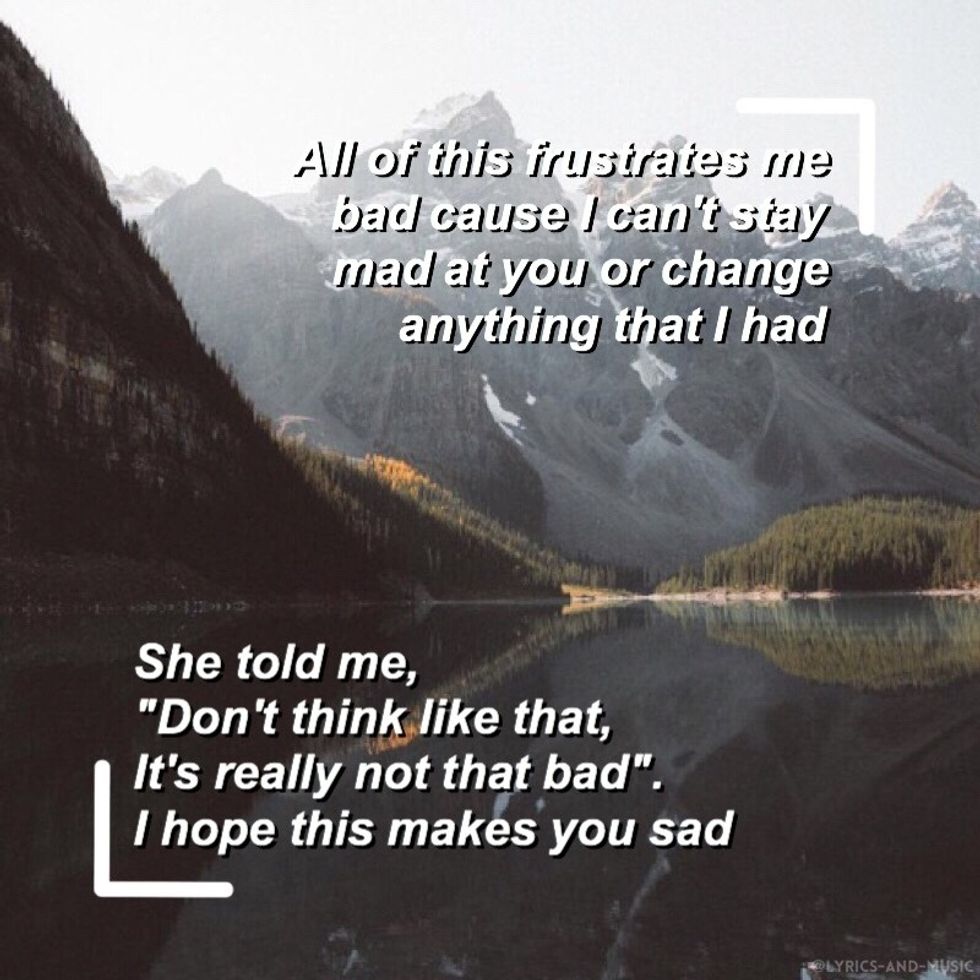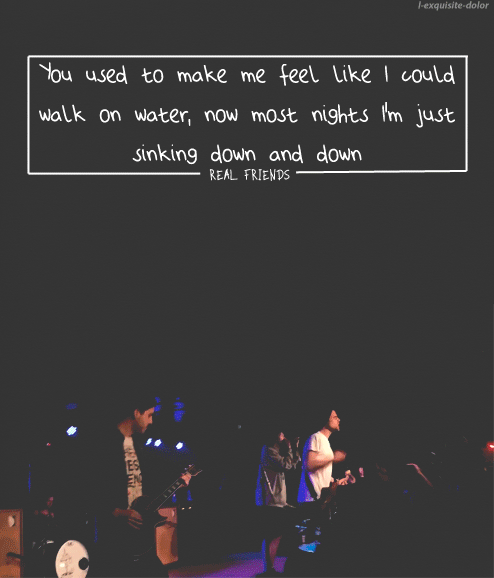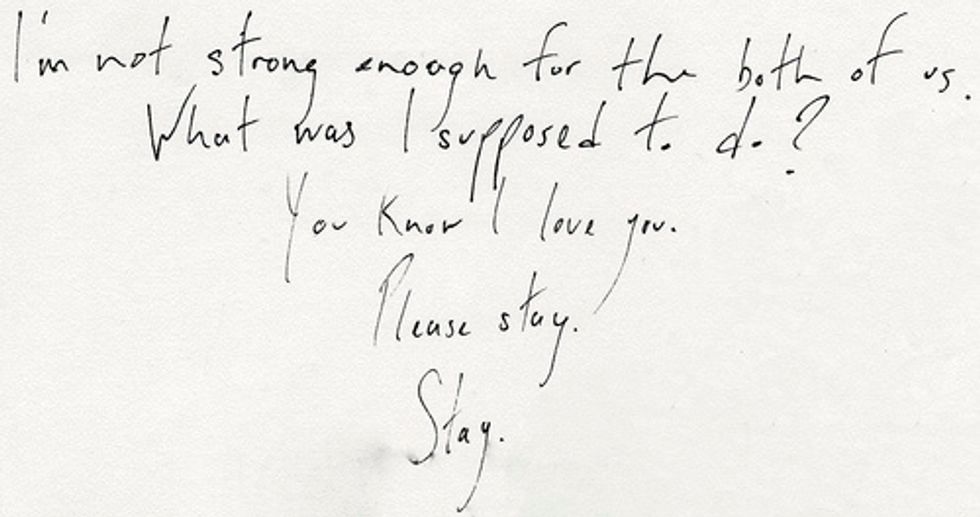8 Simple Ways To Help Save The Environment In Your Everyday Life
In honor of Earth Day and the climate crisis, here are eight easy ways to make the world a better, safer, healthier place.
The climate crisis that is threatening our world today has given humanity a deadline, one that must be met before 2050, or else there will be catastrophic effects on the planet. While it is up to international governments and policy-makers to draft the deals necessary to save the world, there are things that we as normal, everyday people can do to reduce the damaging effects we may inadvertently contribute to the environment.
1. Have a vegetarian day once a week

I know what you might be thinking: how does my diet affect the environment? Well, I'll tell you. Did you know that the production and consumption of red meat contributes to 10 to 40 times as many greenhouse gases as other forms of meat, vegetables, or grains? By simply devoting one day out of the week to eating no red meat can make a significant impact on the betterment of the environment.
2. Drink from a reusable water bottle

Plastic water bottles contribute to 90% of the mass in landfills, taking several years to decompose. By investing in a good reusable water bottle, you're both more motivated to stay hydrated and help the environment! If you're going to continue using plastic water bottles, at least make sure to recycle them!
3. Try reducing your carbon emissions by modifying your everyday commute

Whether it's to work, class, or anywhere in between, changing how you're getting from place to place can have a positive impact on the carbon emissions released into the atmosphere. Now that the weather is getting warmer, maybe don't hop on the bus to class if you can get around it. Take a bike across campus, or even give yourself enough time to walk! Public transportation contributes to a significant amount of carbon emissions that pollute the air we breathe — by modifying your commute, you're making a difference.
4. Shorten your shower time

I'm a fan of long, luxurious showers as much as the next person, but the water that we use to shower can actually have a much darker impact on the environment. Wasting water is no new topic in protecting the environment, but ways to preserve the world's water supply can start right in your own bathroom. By taking a shorter shower by only two minutes, you're doing wonders to reverse how much water you're wasting.
5. Invest in reusable everyday utensils

When Starbucks began to phase out its plastic straws to reduce pollution, it was a big conversation for companies around the world. However, unless you specifically ask for one of their new Nitro-Lids, they will still give you a straw. If you find yourself eating out anywhere with plastic utensils or straws, investing in a set of reusable utensils can make a big difference. You'll be helping reduce the plastic polluting the oceans one step at a time.
6. Turn off lights when you aren't using them...

With everyone's busy lifestyles, I'm sure we're all running from one place to the next, for who knows how long. We might leave a light on with the intent to shut it off, or we might just forget to turn them off period. Whatever the case, make sure to turn off lights when you leave or a room or aren't using them. You'll be doing your part to reduce the energy consumption of the world, inherently helping the environment!
7. ...Or invest in energy-efficient light bulbs

We've all seen those curly light bulbs in stores and in media for their energy-saving power, and for good reason. Energy-efficient light bulbs can make a world of a difference when it comes to the energy crisis the world faces today. Now, while you don't need to worry about turning these light bulbs off each time you leave a room, it is recommended that you turn them off if you will be out of the room for longer than fifteen minutes.
8. Be mindful of what you're throwing into the trash

It's easy to be mindless when throwing something into the trash, especially if you've got a busy lifestyle. However, most of what the average person throws away can be recycled or reused in some way, shape, or form. When it comes to throwing out food, this can lead to modifying how much you're purchasing at the grocery store — if you don't think you'll need that much of something, don't buy it!
How are you contributing to saving the environment?

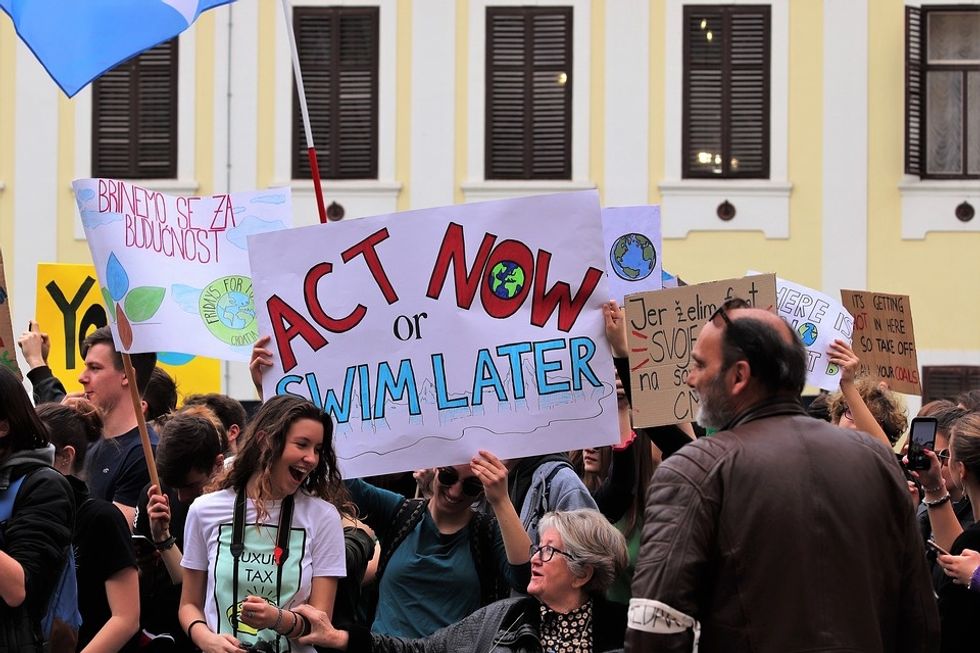
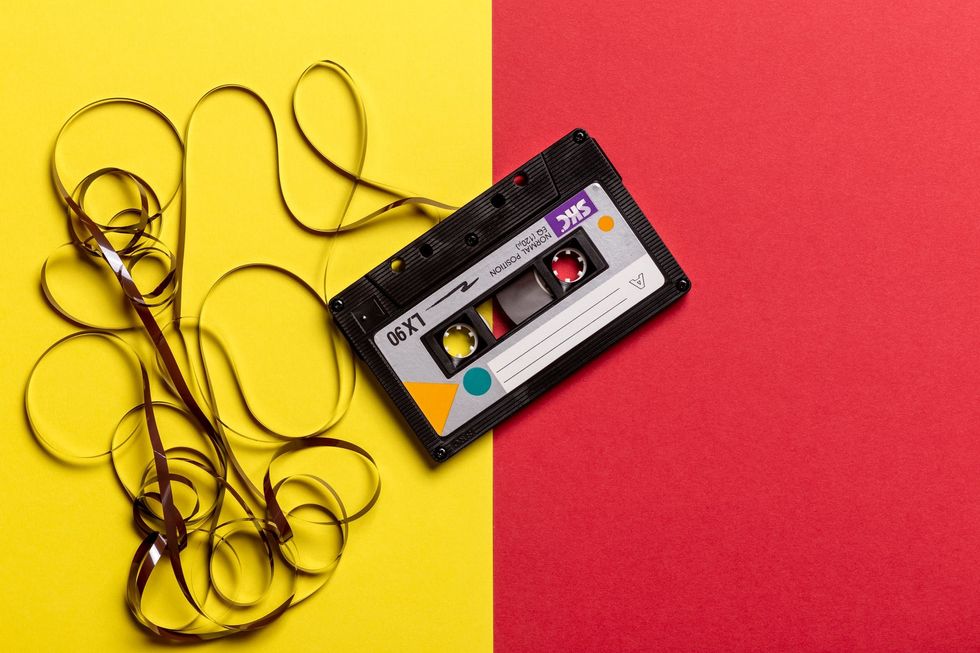












 White bottle of sunscreen resting in the sand at the beach
White bottle of sunscreen resting in the sand at the beach A cute water bottle
A cute water bottle Beach essentials
Beach essentials An old warped tour ticket
An old warped tour ticket Always be prepared!
Always be prepared! Fans get up close with a performer
Fans get up close with a performer










